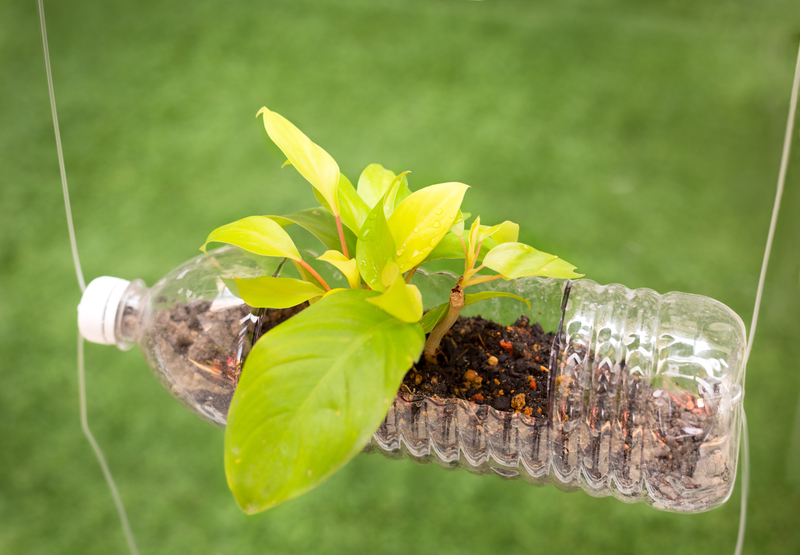Redefining Waste: Simple Transformations for a Greener Lifestyle
Embracing a sustainable, eco-friendly lifestyle is not just a trend--it's a global necessity. As environmental challenges intensify, the call to rethink our approach to waste grows louder. By redefining what we consider as "waste" and adopting simple yet effective actions, we can foster a more circular, greener lifestyle that benefits both the planet and future generations.
Understanding the Concept of Redefining Waste
Redefining waste goes beyond the traditional "use and throw away" mindset. It involves evaluating our consumption patterns, extending the life of products, and viewing waste as a valuable resource rather than a disposable byproduct. This fresh outlook nurtures a culture of reuse, repair, recycling, and responsible consumption.
The Environmental Impact of Traditional Waste
- Landfill Overflow: Every year, millions of tons of municipal waste fill up landfills, taking centuries to decompose.
- Resource Depletion: Many products we discard contain finite resources that could otherwise be conserved through recycling.
- Greenhouse Gas Emissions: Decomposing organic material in landfills emits methane, a potent greenhouse gas.
- Marine Pollution: Mismanaged waste frequently finds its way into oceans, threatening marine life.
By transforming waste management strategies, we help fight these critical environmental threats.

Simple Transformations for a Greener Lifestyle
Adopting a greener lifestyle doesn't have to be overwhelming. Here are straightforward, practical ways to redefine waste and make a meaningful impact:
1. Rethink & Reduce Your Consumption
- Buy Only What You Need: Create a shopping list and stick to it, avoiding impulse purchases that often end up as waste.
- Choose Quality Over Quantity: Invest in durable goods that last longer, minimizing the frequency of replacements.
- Borrow or Rent Instead of Buying: For items used occasionally, like tools or party supplies, consider borrowing from neighbors or renting.
- Opt for Digital: Reduce paper waste by switching to digital receipts, books, and bills.
2. Reuse Creatively
Before discarding, ask: "Can this item serve another purpose?"
- Upcycle Glass Jars: Old jars can be transformed into storage solutions, plant pots, or decorative lanterns.
- Repurpose Old Clothes: Convert worn-out t-shirts into cleaning rags, tote bags, or pet bedding.
- Creative Packaging: Use sturdy boxes or bags for storage, gift-wrapping, or crafts.
- DIY Projects: Many household items--like wine corks, tin cans, or plastic bottles--have surprising reuse potential for creative projects.
3. Composting: Turning Food Waste into Nutrient-Rich Soil
Composting is a powerful tool to transform organic waste into a valuable resource for gardens and plants.
- Kitchen Scraps: Compost fruit and vegetable peels, coffee grounds, eggshells, and tea bags.
- Yard Waste: Leaves, grass clippings, and small branches can also be composted.
- Shred Paper: Add shredded cardboard and newspaper for carbon material.
Composting reduces landfill waste and enriches the soil, thus closing the natural nutrient loop.
4. Recycling Thoughtfully
Not all waste is recyclable, and contamination can hinder the process. Here's how to maximize your recycling efforts:
- Learn Local Guidelines: Research what's accepted in your community recycling program.
- Clean Before Recycling: Rinse out containers to avoid food contamination.
- Sort Correctly: Separate paper, plastics, metals, and glass as required.
- Drop-off Special Materials: Safely dispose of electronics, batteries, or hazardous waste at designated centers.
5. Embrace the Repair-and-Refurbish Culture
- Fix Before Tossing: Simple repairs can give new life to electronics, furniture, or accessories.
- Support Repair Cafes: Community spaces that help people fix belongings while learning new skills.
- Refurbished Products: Choose refurbished goods when shopping for electronics or appliances.
How Redefining Waste Benefits You and the Planet
Environmental Benefits
- Reduces Pollution: Cutting down on waste means less incineration and landfill use, lowering air and water pollution.
- Conserves Resources: Recycling and reusing delay the need for raw materials, preserving natural habitats.
- Mitigates Climate Change: Efficient waste management decreases greenhouse gas emissions.
Economic Advantages
- Cost Savings: Buying less, reusing, and repairing reduces household expenses.
- Create Jobs: Recycling and upcycling industries provide employment opportunities.
- Innovation Potential: New solutions for waste management stimulate economic growth.
Health and Social Benefits
- Cleaner Neighborhoods: Proper waste management keeps communities healthier.
- Empowerment: Learning new skills in repair, composting, or upcycling fosters self-reliance.
- Community Engagement: Sharing, swapping, or collaborating on waste minimization brings people together.
Greener Living Starts at Home: Step-by-Step Guide
Step 1: Perform a Waste Audit
- Analyze your trash for a week--what are the most common items?
- Identify avoidable waste and products with greener alternatives.
Step 2: Set Realistic Goals
- Begin Small: Pick one habit to change, such as bringing your own bags to the store or starting a compost bin.
- Track Progress: Celebrate achievements and set new targets as you grow more sustainable.
Step 3: Make Sustainable Swaps
- Reusable water bottles, coffee cups, and shopping bags
- Bamboo toothbrushes and compostable dish sponges
- Biodegradable packaging and bulk shopping to reduce single-use plastics
Step 4: Educate and Inspire Others
- Share your journey on social media
- Host workshops or discussions in your community
- Lead by Example: Actions speak louder than words!
Redefining Waste in Everyday Life: Practical Examples
1. Refuse, Reduce, Reuse, Recycle--and Rot
These five R's are guiding principles that redefine our relationship with waste:
- Refuse: Say no to unnecessary freebies, plastic cutlery, or overpackaged goods.
- Reduce: Cut down on what you bring into your home--especially single-use items.
- Reuse: Find new uses for items before discarding them.
- Recycle: Send materials to appropriate recycling streams.
- Rot: Compost organic materials instead of sending them to landfill.
2. Redesigning Waste at the Workplace
- Paperless Offices: Adopt digital documentation and cloud storage.
- Centralized Recycling Bins: Make recycling more accessible and understandable for employees.
- Green Procurement: Source products from suppliers with strong sustainability practices.
- Organize Swap Days: Exchange unused office supplies or electronics among coworkers.
3. Schools and Community Initiatives
- Eco-Clubs: Encourage student-led waste reduction projects.
- Educational Campaigns: Raise awareness about reducing, reusing, and recycling in the wider community.
- Community Composting: Collect organic waste for a shared compost facility.
The Role of Technology and Innovation in Redefining Waste
Modern technology accelerates greener waste management and the circular economy by:
- Smart Bins: Technology that monitors waste and alerts users about recyclables or fullness.
- Recycling Apps: Tools that inform users about local recycling options and centers.
- Material Recovery Facilities (MRFs): Use of robotics and AI to sort and process recyclables efficiently.
- 3D Printing with Recycled Plastics: Turning plastic waste into new products through innovative manufacturing.
Global Progress: Redefining Waste on a Larger Scale
Zero Waste Cities
Some cities are leading the way in zero waste initiatives, proving that large communities can successfully minimize landfill waste:
- San Francisco, USA: Aims for zero waste by 2025 through rigorous recycling and composting programs.
- Kamikatsu, Japan: Achieves above 80% waste diversion by requiring residents to sort waste into 45 categories.
- Ljubljana, Slovenia: The first European capital to adopt a zero-waste goal, now recycling over 60% of its waste.
Corporate Responsibility
Businesses are increasingly redesigning products and packaging for recyclability and minimal environmental impact, setting new norms for sustainable production and consumption.
Common Obstacles and How to Overcome Them
1. Convenience Culture
- Solution: Plan ahead by carrying reusable items and supporting local refill stores.
2. Lack of Infrastructure
- Solution: Advocate for better waste management facilities or participate in local clean-up projects.
3. Misconceptions About Recycling
- Solution: Educate yourself and others on what can and cannot be recycled in your area.

Frequently Asked Questions on Redefining Waste
- Why is rethinking waste important?
Rethinking waste helps conserve limited resources, protect natural ecosystems, and reduce pollution and greenhouse gases. - Can individuals really make a difference?
Absolutely! Collective small actions drive change, influencing markets, policy, and social norms. - What if my area has limited recycling programs?
Focus on reducing and reusing, composting if possible, and advocate for expanded recycling options.
Conclusion: Join the Movement--Redefine Waste for a Greener Future
Our planet's health depends on the daily choices we make. Every act, from refusing a plastic straw to composting your food scraps, contributes to a culture where waste is no longer an afterthought but a resource. By redefining waste through simple transformations, we foster an eco-friendlier lifestyle that not only preserves biodiversity and natural beauty but also ensures a brighter, healthier future for all.
Are you ready to take the first step? Start redefining waste today--your actions matter!